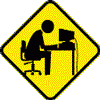problem with BIOS and floppy drive
Started by
jared6502
, Jul 06 2009 08:27 PM
#1

 Posted 06 July 2009 - 08:27 PM
Posted 06 July 2009 - 08:27 PM

#2

 Posted 06 July 2009 - 08:29 PM
Posted 06 July 2009 - 08:29 PM

I would recommend updating the BIOS.
#3

 Posted 07 July 2009 - 04:35 PM
Posted 07 July 2009 - 04:35 PM

I very much doubt it's a 720k floppy drive. Go into the BIOS and change the Drive A option to 1.44Mb. All 1.44Mb drives can read and format 720k disks if that's what you have.
#4

 Posted 08 July 2009 - 02:55 AM
Posted 08 July 2009 - 02:55 AM

Yes, I agreed, reset Bios and see if the floppy changes to 1.44mb, if not, manually do so.
Hope this helps!
Bill
www.PcTestCard.com
Hope this helps!
Bill
www.PcTestCard.com
Edited by PcTestCard, 08 July 2009 - 02:57 AM.
#5

 Posted 09 July 2009 - 09:44 AM
Posted 09 July 2009 - 09:44 AM

I would not do a bios upgrade unless it is a specific fix to a problem as described by the manufacturer.I would recommend updating the BIOS.
One wrong move in a bios upgrade/ flash and you have a computer that will not work. You will have to attempt a reflash, change the bios chip, or the board. The last 2 being expensive.
123runner
#6

 Posted 09 July 2009 - 02:24 PM
Posted 09 July 2009 - 02:24 PM

Thanks for the replies. Just to let you know, this drive is old and I was only testing it to see if it still worked, since 720kb is the only 3.5" drive type supported by the computer it is to be used in, which is a Datavue Spark (yes, I know it's old and not very useful, but I have a few things I'm going to do with it). I looked into a BIOS upgrade for the test computer(s), but there wasn't even a website for the one company and it would have cost me money for a BIOS upgrade for the others. I have a feeling that it's a problem with both the drive and the BIOS, since I've tried it in 3 different computers and none of them would boot from it. I can't even access it using MS-DOS. The computer it's for can't even boot from it. I don't understand why Windows can use it without a problem, when it doesn't work at any other time. I would reset the BIOS and let it autodetect the drive, but I know for a fact that it is a 720kb drive and not a 1.44mb drive because it's the same drive as in the Datavue (same part number and everything).
Similar Topics
0 user(s) are reading this topic
0 members, 0 guests, 0 anonymous users
As Featured On:
















 Sign In
Sign In Create Account
Create Account

